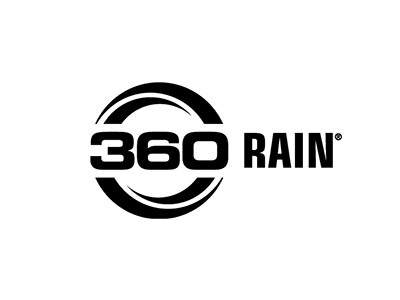360Rain

Autonomous crop monitoring and management systems are revolutionising modern agriculture, and 360 Yield Center stands at the forefront with its 360 RAIN platform. This innovative, autonomous machine transforms in-season crop care by delivering precise irrigation, nutrients, and crop protection—directly where plants need them most, whenever they need it.
How 360 RAIN Works
- The 360 RAIN system uses a 60-foot boom fitted with Y-DROP-style hoses to apply water, nutrients, and even manure bands at the base of each plant row.
- An onboard computer controls up to 2,900 feet of 3-inch hose, allowing the unit to autonomously traverse the field along GPS-guided RTK paths created by the farmer’s planter
- This electric, three-wheeled unit operates day and night, finishing an 80-acre field in a single application cycle and applying over 2 million gallons of water per week—even with lower capacity wells.
- It adapts to fields of any shape, providing 100% coverage—a key advantage over traditional center pivot systems limited to circular fields.
Precision and Efficiency
- 360 RAIN delivers water and nutrients in small, frequent doses (as little as half an inch per week), timed precisely for critical crop stages, mimicking natural rainfall and reducing waste.
- The system can carry and inject fertilizers (like nitrogen, sulfur, and boron) or manure solutions, with variable rates to match crop needs, including the potential to apply fungicides and insecticides.
Integrated Crop Monitoring
- The platform is being developed to include camera systems and other sensors capable of detecting crop stress, disease (such as tar spot or leaf rust), and pest damage in real time. This enables immediate, targeted intervention and data-driven decision-making.
- Collected data is processed via cloud-based accounts, integrating directly with the farm’s digital mapping and control systems for seamless operation.
Proven Yield Benefits
- Field trials show that test strips irrigated with 360 RAIN produced up to 65 additional bushels per acre, a 32% improvement over non-irrigated land, by delivering three or four inches of critical moisture throughout the growing season.
- The precise, root-zone application means the system achieves more with less—using up to 75% less water than traditional pivot systems, making irrigation feasible in areas with limited water supply.
Key Advantages
- Lower water and nutrient consumption compared to conventional methods.
- Compatible with irregularly shaped fields and various soil types.
- Full automation: Once set, the unit operates independently, requiring minimal intervention.
- Data-driven insights and on-the-fly adjustments, enhancing sustainability and profitability.
Limitations & Outlook
While 360 RAIN is rapidly advancing (with prototype and commercial units already operating in the U.S.), it is primarily designed for row-crop operations such as corn and soybeans, and relies on the availability of digital field maps and RTK GPS. The technology is evolving to integrate richer data analytics and more extensive sensor suites for even finer crop health monitoring in the future.
The 360 RAIN system represents a significant leap toward autonomous, precision agriculture—offering farmers smarter, more sustainable control over both crop input and monitoring than has ever been possible before.